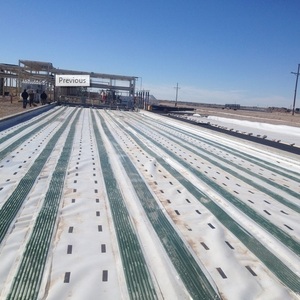EPA approves Joule's advanced biofuel pathway




Joule
April 15, 2016
BY Erin Krueger
The U.S. EPA recently approved a renewable fuel pathway filed by Joule Unlimited Technologies Inc., allowing the company to generate D5 advanced biofuels renewable identification numbers (RINs) for its algae-based ethanol under the renewable fuel standard (RFS).
The approval letter notes Joule’s process produces advanced ethanol using photosynthetic cyanobacteria and a proprietary production process called Helioculture Sunflow-E ethanol process. During the process, cyanobacteria act as a catalyst to produce and secrete ethanol, which is then collected and purified. The EPA’s letter also notes the algal biomass is processed to produce an algal oil product.
Advertisement
Advertisement
The EPA’s analysis determined that Joule’s ethanol achieves an 85.1 percent lifecycle greenhouse gas reduction when compared to baseline gasoline. Total emissions associated with Joule’s ethanol, including upstream emissions, fuel production, fuel distribution and use and coproduct credit, equaled 14.7 kilograms of carbon dioxide equivalent per million Btu. The gasoline baseline is 98.2 kilograms of carbon dioxide equivalent per million Btu.
Joule issued a statement in response to the EPA’s action, noting the pathway approval will aid in accelerating the commercialization its fuel. "Following strong momentum in 2015, we're pleased to start this year off in such a productive manner, with some major highlights on the technical and regulatory front," said Brian Baynes, Joule CEO. "The qualification from the EPA allows Joule to compete with other forms of ethanol and provides our customers and partners with the full benefit of renewable fuels from a cost, production and environmental standpoint."
A copy of the pathway approval document can be downloaded from the EPA’s website.
Advertisement
Advertisement
Related Stories
The U.S. Department of Energy Bioenergy Technologies Office (BETO) announced up to $23 million in funding to support research and development (R&D) of domestic chemicals and fuels from biomass and waste resources.
The U.S. DOE has announced its intent to issue funding to support high-impact research and development (R&D) projects in two priority areas: sustainable propane and renewable chemicals and algal system cultivation and preprocessing.
Sens. Sherrod Brown, D-Ohio, and Pete Ricketts, R-Neb., in August introduced the Renewable Chemicals Act, a bill that aims to create a tax credit to support the production of biobased chemicals.
The Chemical Catalysis for Bioenergy Consortium, a consortium of the U.S. DOE’s Bioenergy Technologies Office, has launched an effort that aims to gather community input on the development of new biomass processing facilities.
USDA on March 8 celebrated the second annual National Biobased Products Day, a celebration to raise public awareness of biobased products, their benefits and their contributions to the U.S. economy and rural communities.
Upcoming Events










